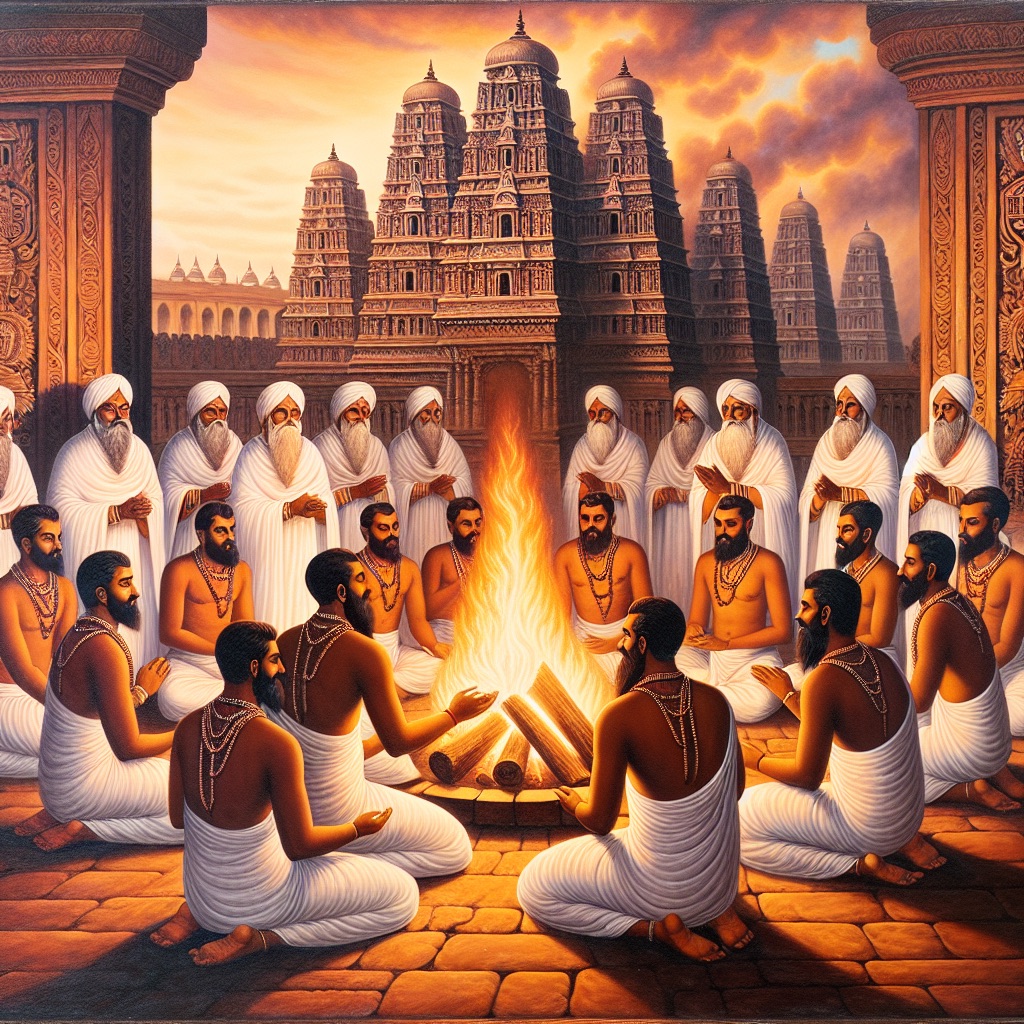1.3.6
Then they said to the mind, ‘Chant (the Udgītha) for us.’ ‘All right,’ said the mind and chanted for them. The common good that comes of the mind, it secured for the gods by chanting, while the fine thinking it utilised for itself. The Asuras knew that through this chanter the gods would surpass them. They charged it and struck it with evil. That evil is what we come across when one thinks improper things. Likewise they also touched these (other) deities with evil—struck them with evil.
-
अथ
atha —
-
ह
ha —
-
मन
mana —
-
ऊचुः
ūcuḥ —
-
त्वं
tvaṃ —
-
न
na —
-
उद्गायेति
udgāyeti —
-
तथेति
tatheti —
-
तेभ्यो
tebhyo —
-
मन
mana —
-
उदगायत्
udagāyat —
-
यो
yo —
-
मनसि
manasi —
-
भोगस्तं
bhogastaṃ —
-
देवेभ्य
devebhya —
-
आगायत्
āgāyat —
-
यत्
yat —
-
कल्याणं
kalyāṇaṃ —
-
संकल्पयति
saṃkalpayati —
-
तदात्मने
tadātmane —
-
ते
te —
-
विदुरनेन
viduranena —
-
वै
vai —
-
न
na —
-
उद्गात्रात्येष्यन्तीति
udgātrātyeṣyantīti —
-
तमभिद्रुत्य
tamabhidrutya —
-
पाप्मनाविध्यन्
pāpmanāvidhyan —
-
स
sa —
-
यः
yaḥ —
-
स
sa —
-
पाप्मा
pāpmā —
-
यदेवेदमप्रतिरूपं
yadevedamapratirūpaṃ —
-
संकल्पयति
saṃkalpayati —
-
स
sa —
-
एव
eva —
-
स
sa —
-
पाप्मा
pāpmā —
-
एवमु
evamu —
-
खल्वेता
khalvetā —
-
देवताः
devatāḥ —
-
पाप्मभिरुपासृजन्
pāpmabhirupāsṛjan —
-
एवमेनाः
evamenāḥ —
-
पाप्मनाविध्यन्
pāpmanāvidhyan —

